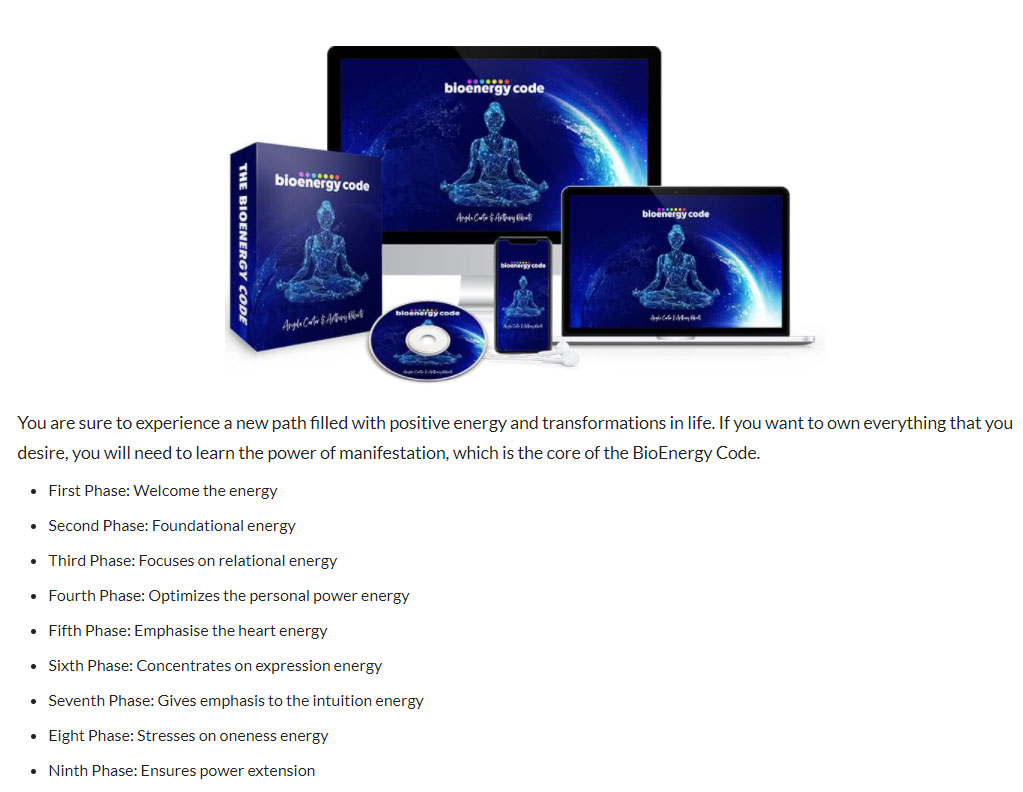Crying during meditation
Have you ever found yourself crying during a meditation session? If so, you are not alone. It is something that happens to a number of people. To shed a tear in the middle of a meditation session can be a shock to many. After all, you were probably doing this exercise to help calm your mind and disarray, but then you got overwhelmed by your emotions and snapped.
In this article, we'll find out what this means. Why you might start crying during meditation, and we will give you some tips on how to deal with these strong emotions.
Crying during meditation: Is this normal and why does it happen?
Yes, it is. Meditation is an ongoing practice that helps you train your mind, create a heightened state of awareness and focus your thoughts. This practice has become very popular because of its benefits, including :
- Reduced symptoms of stress and depression
- Controlling anxiety
- Promote kindness and compassion towards oneself and others
- Increase imagination and creativity
- Improve concentration and attention
- Relieve headaches
- Promoting mindfulness
- Improve sleep
- Controlling chronic pain
- When we think of meditation, these are the benefits we think of, and for most of us, sitting down, clearing our minds and focusing on our breathing for a few minutes each day will bring these benefits to you.
What we don't think about, however, is that when our mind is empty of the constant stream of distracting thoughts, that's when some of our most buried and sometimes unresolved feelings may tend to surface. When these emotions suddenly appear, you may find yourself completely overwhelmed to the point of crying intensely during meditation.
Whether you want to learn how to get out of the spiral of self-destructive behaviors, overcome anxiety, cure insomnia or simply give yourself time and space to blossom and soak up a moment of total peace and tranquility.

What does it mean to cry during meditation?
Crying during meditation is often a manifestation of unresolved and repressed emotions in our subconscious mind. When your mind is free of thought, you are able to look at yourself. And when you do, you may not always like what you see. But that's not a bad thing.
It is healthy for you to shed a tear during this practice, or to collapse completely. It means that you get back in touch with yourself. It gives you a chance to examine yourself, examine your emotions, let them out, and gives you a chance to heal.
An important fact to note is that crying during meditation can be the result of negative or positive triggers. Here are some of the reasons why you may find yourself crying during this special time:
Reaching self-awareness
In psychology, self-awareness is defined as the ability to see oneself clearly and objectively through reflection and introspection, and in relation to emotional intelligence, it is defined as the ability to understand one's own emotions and their effects on one's performance.
Self-awareness helps you understand what you feel, why you feel that way, and how these emotions help or hurt you. While many of us would like to believe that we are self-aware, the truth is that this is not the case.
Meditation is a tool that helps us to be more in touch with ourselves. The downside is that we may realize that we are not as great as we thought we were. Awareness can bring out our flaws that can end up making us cry during meditation.
A wave of happiness and peace
As mentioned earlier, crying during meditation is not always the result of a negative trigger. Feeling deeply happy and at peace is one thing that can make you shed a tear during meditation.
The feeling of gratitude
Gratitude meditation is a meditation technique that asks practitioners to make a list of things for which they are happy and grateful. This practice is known to help increase optimism, relieve depression, improve immune function, lower blood pressure and strengthen relationships with those around us.
One obvious fact is that this practice will automatically increase our sense of gratitude. Realizing that you are surrounded by blessings and love during this exercise may cause you to cry intensely during meditation; not because you are sad but because you are happy and feel very lucky.
Achieving Self-Compassion
Self-compassion is a feeling of warmth and understanding towards oneself when one suffers, fails or feels inadequate. More often than not, we tend to criticize ourselves quite harshly for our failures and inadequacies. Meditation can help us to be kinder and to forgive ourselves, which may bring us to shed a tear or two.
Freeing oneself from unpleasant emotions
Meditation is a great way to try to solve problems. If you've been feeling guilty, hurt or angry, taking time to meditate helps you sort through these negative emotions and release them so that they no longer overwhelm you. This act may cause you to cry during meditation because you are no longer burdened by these negative feelings.
Becoming aware of a certain truth
This can be a good or a bad thing. On the positive side, this practice can help you realize that you are surrounded by love and not as alone as you had previously assumed, which could trigger strong emotions, making you cry.
On the other hand, it may help to put into perspective the fact that you are not happy with yourself, your lifestyle, your work or someone in your life. This then triggers feelings of pain or sadness, which could make you cry during meditation.

What to do when you start crying during meditation?
Let's be honest, the knee-jerk reaction most of us would have when we realize we are crying during meditation is to quickly put a stop to it. But that is not the right thing to do. Here's what to do when you realize that you are crying during chakra meditation (or any other form of meditation).
Recognize the feeling that makes you cry
Whether it's a good feeling or a bad feeling, acknowledge it and take a minute to examine it. Most of us are generally not ready to deal with the negative feelings in our lives. We beat them up and bury them deeply by choosing to move one without facing them. When they arise during meditation, resist the need to bury them again, and this time examine them. All of your emotions, good or bad, are valid, and managing them will help you to release them and unburden yourself.
Letting yourself go, without holding back
Crying is never a bad idea. In fact, crying has many benefits, including improving sleep, stimulating mood, releasing toxins and hormones that help raise stress levels, relieving pain and relaxation, and strengthening the immune system. Whether you cry tears of joy or sadness, let the tears flow freely.
Know how to talk about it
Crying during meditation can make you feel raw and vulnerable. Once your session is over, take time to talk about your experience and feelings with someone you trust. This will help you to release even more of yourself.
Recording resentment in a journal
If you don't have anyone to talk to, this may be a good option for you. Journaling has become increasingly popular in recent years, and for good reason. It helps keep your thoughts organized, stimulates memory and enhances creativity, among other benefits. In terms of mental health, journaling can help you manage anxiety, reduce stress and cope with depression.
Once you have finished crying, take out your journal and make a list of the reasons why you cried during meditation. If the reasons for crying were wrong, this practice will help you prioritize the problems, fears and concerns that are bothering you. It also gives you an excellent opportunity to practice positive inner dialogue, which can help you eliminate any negative feelings you may have experienced during meditation.

Since stress is a constant presence in our lives, it is absolutely crucial to take the time to process emotions, decompress and get into the right frame of mind.
What happens when you meditate?
This practice affects both our mind and body in different ways. Here is what happens to your brain when you meditate. Through the use of MRI, scientists have discovered that this practice causes a pause in our brain and prevents it from processing information as actively as it would normally at other times. This is what happens to different parts of the brain during meditation:
1.The frontal lobe. This part of the brain is important for voluntary movement, expressive language, and the management of high-level executive functions. These executive functions include the ability to plan, organize, initiate and monitor oneself. During this exercise, the frontal lobe "disconnects".
2. The thalamus. This part relays motor and sensory signals to the cerebral cortex. As you meditate, the flow of incoming information slows down. The more you meditate, the less information this part of the brain receives.
3. The parietal lobe. When you meditate, this part slows down. This lobe is located in the upper part of the back, in the skull, and processes sensory information related mainly to touch, taste and temperature.
4. Reticular formation. This part is best known for its role in stimulating awakening and consciousness. Meditation puts your feelings of arousal on hold throughout the practice (and even for a while afterwards).

What about our body? What effect does this practice have on it?
Meditation helps to reduce metabolism, relieve chronic pain, lower blood pressure and improve health and heart rate (it reduces high blood pressure in the long term.
It also improves breathing, can boost your mood and strengthen your immunity. In terms of women's health, it is said to help combat PMS (premenstrual syndrome) - reduces hot flashes, breastfeeding in new mothers - increases milk production - as well as infertility problems in women trying to conceive.
Falling asleep during meditation: Is this normal?
Like crying during meditation, falling asleep during meditation is a common phenomenon. You may be surprised to learn that this problem does not only affect beginners, but also experienced meditators and those who have been meditating for a long time. Although it is quite common, it can also be frustrating, especially if you are trying to learn the practice or using it to solve certain problems.
The reason we may find ourselves napping and taking a nap during meditation is very simple. As a beginner, it can be very difficult to find the perfect balance between concentration and relaxation. While some people find it difficult to relax, you relax a little too much, more than is necessary to meditate and fall asleep. Remember that meditation is all about balance. If you fall asleep, enjoy your nap and try again next time. Here are some tips that may help you stay awake the next time you choose to try meditation:
1. Do it while sitting up straight. Lying down during meditation can encourage you to sleep. However, when you are sitting, you are less likely to fall asleep, because the position is not the most relaxing and if you sleep, you may fall asleep.
2. Do not meditate in bed. This is the same logic as meditating in a lying position. A warm and comfortable bed promotes sleep.
3. Try sitting in front of a window or outside on the balcony. The fresh air and breeze (if available) will help you stay awake.
4. Choose to meditate in the morning rather than in the evening. If you try to meditate when you are exhausted after a long day, you will most likely end up falling asleep.
5. Do not meditate immediately after waking up. Your mind and body are not yet fully awake, so you may fall asleep. Once you wake up, walk a little, brush your teeth, have a cup of tea, and then meditate.
6. Get out of the house. You don't have to meditate only in the house. Meditate while walking in nature, sitting on a park bench or lying down under a tree outside. Nature will guide you.
7. Do not meditate after a large meal. Large, heavy meals always make you drowsy. If you choose to do this calming exercise after a large meal, you will most likely end up falling asleep during meditation.

What does meditation look like?
If you are wondering what meditation looks like, the truth is that it really doesn't look like anything. There are no words to describe what it is. The practice requires that you let go of all your thoughts, relax and accept things as they are and as they may come. However, if you want to know if meditation works, here is what you might feel:
- You sleep better.
- You are less preoccupied with the unknown and the things you can't control.
- Your self-esteem has increased and you no longer rely on the validation of others to see your value.
- You feel less nervous and anxious.
- You are happier and more relaxed.
- You will get a better concentration.
- You are kinder to yourself and to others.
- You are more imaginative, more creative and less self-centered.
The purpose of the mantra during meditation
What is a mantra in meditation? The word "mantra" actually comes from two Sanskrit words "man" meaning mind and "tra" meaning liberation, an instrument or tool that helps to transport the mind from a state of activity to a state of calm and silence. In short, a mantra is a mind/thought tool that helps to control and focus the mind.
The main purpose of a mantra during meditation is to help you stay focused on the task at hand. Concentration during this exercise is often not easy to achieve and many people find their mind wandering. However, having a phrase to repeat over and over again helps to keep your mind from drifting. A mantra can also help you strengthen your meditation goals.
The Essential
It is normal to cry during meditation and no one should be ashamed to do so. It shows that you are getting in touch with your emotions and that you are beginning to become aware of yourself. Whether you are crying tears of joy, gratitude, sadness or anger, let the tears flow and cry at the top of your lungs. Once you are finished, if your tears are from negative emotions, take time to analyze your feelings, where they come from, and what you can do to change the situation that makes you feel this way. This will help you get rid of any repressed feelings that may be causing you to fall.


